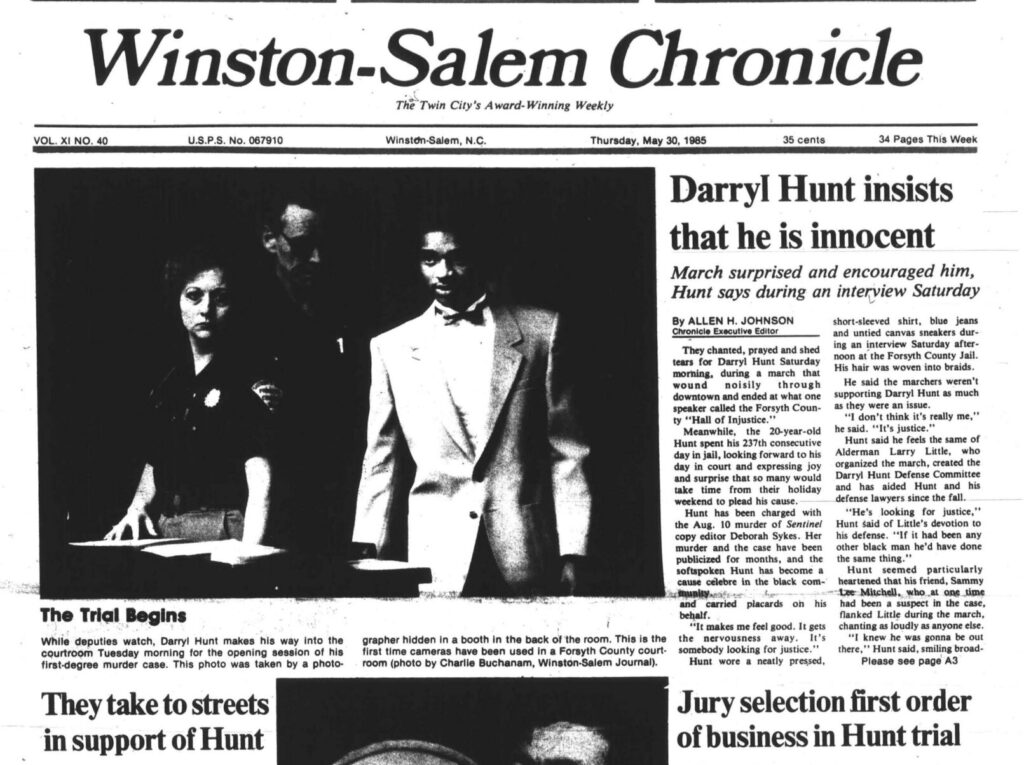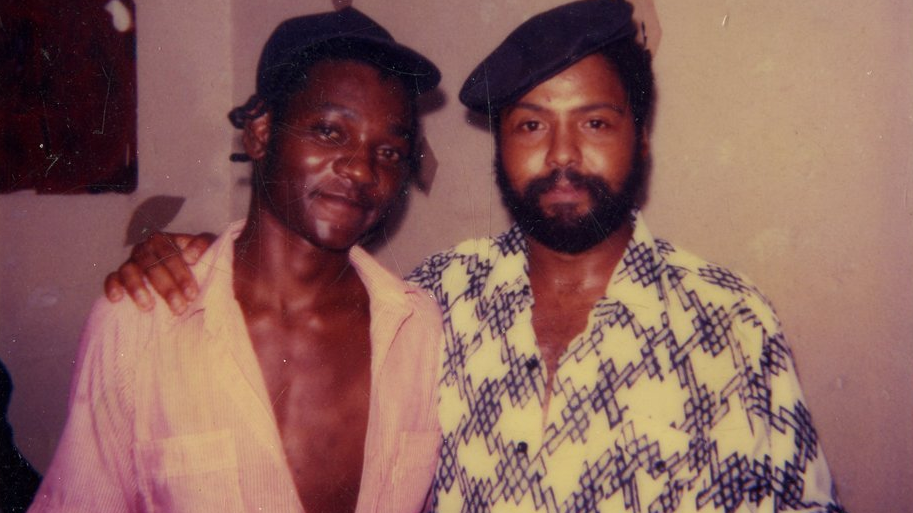Special Collections & Archives
Special Collections and Archives includes an archive of current and historic Law School and faculty publications, such as:
- Wake Forest Jurist
- Bulletin of Wake Forest College School of Law (1936-1966)
- WFU School of Law Student Handbook (1985-2009)
- WFU School of Law Alumni Directory: 1894-1999
- Hearsay: The Wake Forest School of Law Newspaper (1973-2008)
This research guide focuses on the history of Wake Forest School of Law and associated resources available in Special Collections and Archives, including publications by and about faculty, staff, students and alumni.
Special collections include the Darryl Hunt and Hunt Trials Collection, donated by Clinical Prof. of Law Mark Rabil. Read more about the collection and browse the finding aid and inventory.
Open by appointment only at the Law Library, Wake Forest School of Law. Please fill out this form to request research assistance, collection use, and materials reproduction. Learn more about our policies regarding access, reproductions, citation, and copyright.

THE DARRYL HUNT AND HUNT TRIALS COLLECTION
One of the most highly publicized and studied wrongful conviction cases of our time, the Darryl Hunt case is the focus of thousands of pages of attorney files, court records and trial transcripts, police reports, correspondence and photographs. This material, donated to the Wake Forest University Law Library by Clinical Professor of Law Mark Rabil, who founded Wake Law’s Innocence & Justice Clinic and worked for Hunt’s freedom from 1984 to 2003, comprises the Darryl Hunt and Hunt Trials Collection.
In a 1985 trial, Hunt, a 19-year-old Black man, was falsely convicted of the 1984 rape and murder of a white copy editor with the Twin City Sentinel, Deborah Sykes. One juror saved Hunt from the death penalty, but another jury re-convicted him in 1990 and the judge sentenced him to life imprisonment. In 1994, DNA testing showed that Hunt was not the rapist, but the state and federal courts rejected his appeals and kept him incarcerated. Finally, in 2003, the efforts of Hunt’s attorney and an eight-part article series by Phoebe Zerwick for the Winston-Salem Journal led to new DNA testing that identified the actual rapist and killer. That man, Willard Brown, confessed, pled guilty and is serving a sentence of life plus ten years. On Christmas Eve 2003, after nearly 20 years of wrongful incarceration, Hunt was released. NC Governor Michael F. Easley granted him a pardon of innocence after the court dismissed the charges in 2004. From 2004 until his death in 2016, Hunt worked closely with Rabil and other advocates to reform the criminal justice system through The Darryl Hunt Project for Freedom and Justice. This work inspired numerous legislative reforms in North Carolina, including the North Carolina Innocence Inquiry Commission (2006) and the Racial Justice Act (2009).
The Darryl Hunt and Hunt Trials Collection is a valuable resource for scholars, students, professors, journalists and others studying the Hunt case and similar cases of wrongful conviction. The collection includes trial strategies and preparation for two jury trials, numerous post-trial motions and appeals in state and federal courts and information about the investigations by Rabil, police, detectives, and other appellate attorneys and supporters to locate the real killer and free Hunt. Personal materials and letters written by Hunt document his nearly 20-year incarceration and life after prison.

The Darryl Hunt and Hunt Trials collection is 55.18 linear feet (40 record cartons, 3 document boxes, 2 half-document boxes, 1 oversize box). Series within the collection include:
- Correspondence
- Court Documents
- Darryl Hunt Personal Materials
- Darryl Hunt Project for Freedom and Justice
- Documentary Film Materials
- Investigative Materials and Crime Scene Photographs
- Legal Research
- Newspaper Articles and General Photographs
- Related Cases
- Trial Transcripts
- Writings and Notes
Open by appointment only at the Law Library, Wake Forest School of Law. Please fill out this form to request research assistance, collection use and materials reproduction.
Read more about the collection and browse the finding aid and inventory.
